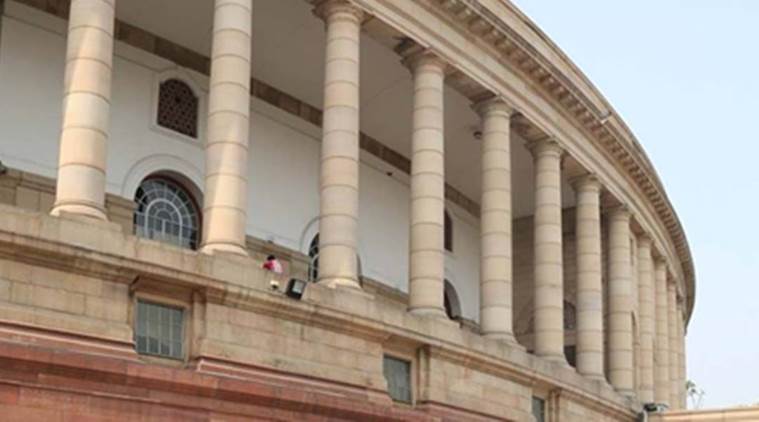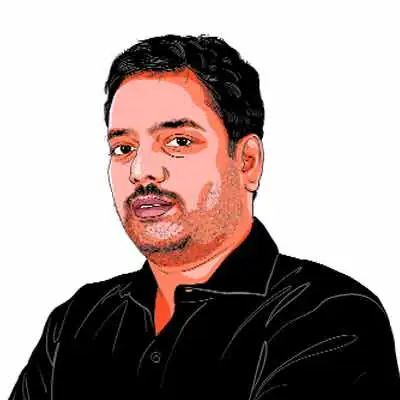Opinion Party against reform
Congress opposition to GST does no credit to a party that opened up the economy 25 years ago.
 Yanamala said since Andhra Pradesh would stand to lose Rs 23,500 crore over five years because of GST, it is the Centre's responsibility to bridge the gap.
Yanamala said since Andhra Pradesh would stand to lose Rs 23,500 crore over five years because of GST, it is the Centre's responsibility to bridge the gap.  The Congress’s opposition to GST, which according to Manmohan Singh could be ‘an envy of the world’, is out-and-out political.
The Congress’s opposition to GST, which according to Manmohan Singh could be ‘an envy of the world’, is out-and-out political.
IT HAS been almost a decade since the then finance minister P. Chidambaram first proposed April 1, 2010 as the date for introducing a national-level Goods and Services Tax (GST) in his budget speech of 2007-08. As is evident, that was not to be so. Yes, a broad political consensus had evolved over the years. A shift to a clean dual VAT (value added tax) system — with the Centre and states individually taxing both goods and services at similar rates — sounded both plausible and imminent by 2011. Despite the UPA’s political will to see through the complex implementation of what truly is a second generation reform, it could not. GST is referred to as a second generation reform because it required both the Union government and states to be on board. Unfortunately, the BJP single-handedly stalled GST in Parliament then, frustrating and provoking the mild-mannered Prime Minister Manmohan Singh. This is not lost on the Congress today.
The Congress’s opposition to GST, which according to Singh could be “an envy of the world”, is out-and-out political. The party’s demands are unreasonable — some in the Congress privately describe them as absurd. One, it wants the government to specify the GST rate in the Constitution itself.
Extending the logic, there may be demands tomorrow for all other taxes including personal income tax rates and corporate tax rates to be mentioned in the Constitution. If so, every change in taxes will require a constitutional amendment. The ideological underpinning of the Congress’s argument is that indirect taxes are paid by the rich and poor alike and the government’s need to raise revenues will push it to hike tax rates.
In India, though, indirect tax rates have evolved over decades and items consumed by the poor and needy are taxed at lower rates. So, 75 per cent of the items that make up the Consumer Price Index basket are either not taxed or are taxed at low rates. Besides, why wouldn’t the Congress itself propose this while in office begs a serious answer. Also, the Congress wants disputes between states or between states and the Union government on GST to be decided by an adjudication authority. This too is bizarre since it amounts to yielding legislative powers of taxation to the judiciary. This, again, needlessly adds a new element to the friction between the courts and the government.
Having said this, the Congress itself is facing a strange predicament. How can it hand over the GST legislation to the Narendra Modi government on a platter? Having relentlessly pursued it for eight years and with the BJP stalling it all along, how can it let the mileage of the biggest indirect tax reform accrue to the NDA. This is best explained in Manmohan Singh’s words. On February 16, 2011, a fortnight before the budget for 2011-12 was to be presented, he had a long interaction with editors of the electronic media.
Those were rough days for Singh with his UPA government besieged with allegations of scams and scandals such as 2G spectrum, Commonwealth Games, Adarsh Society and Devas-Antrix. Nevertheless, he said his government had not lost the will to take hard decisions. “We will persist. There are difficulties when Parliament is not allowed to function. When the Opposition-led states, for example, do not wish to cooperate over path-breaking reforms ushering in a single goods and services tax. This is the reform which is needed. This would make our tax system — if the reform comes about — an envy of the world. But the Opposition parties, particularly the BJP, have taken a hostile attitude and the reasons that have been given, frankly, I cannot mention in public. They say because you have taken some decision against a particular person who was a minister in Gujarat, we must reverse it. I don’t want to add further,” he said then. It’s hard to imagine Singh make such a statement unless pushed to a corner by an intransigent Opposition.
The Congress perceives itself to have the upper hand politically after the Supreme Court judgments on Uttarakhand and Arunachal Pradesh. Moreover, instinctively it would want to mete out the same treatment to the NDA government as the BJP did to the UPA.
But such a stance goes against the grain of a party that initiated economic liberalisation 25 years ago. Certainly, it does not wish to isolate itself and be seen as blocking a giant step forward. Even with a strength of 71 MPs in the 245-member strong Rajya Sabha, the Congress will have to eat humble pie if all other parties side with the government on GST unless, of course, its strategy for the session is to disrupt proceedings in the Rajya Sabha every day to prevent a vote. So far, it has kept the government at bay, but politically this will end up damaging its reformist credentials assiduously built over time.
On its part, the government is seen to be making sincere attempts to reach out to the Congress. Finance Minister Arun Jaitley and Parliamentary Affairs Minister Ananth Kumar walked up to Ghulam Nabi Azad’s office in Parliament on Friday for a candid discussion on GST. They spent about 45 minutes to build a consensus on the matter. More meeting(s) are expected — the next follow-up tentatively scheduled for Tuesday. In fact, senior BJP and government functionaries have informally beseeched their well-meaning Congress friends not to make the same mistake as the BJP did by opposing the India-US civil nuclear agreement.
It’s for the Congress leadership to take the final call. It cannot be seen to hold back the nation at a time when the global economy is sputtering and India has many unticked items in its own domestic reform agenda.





